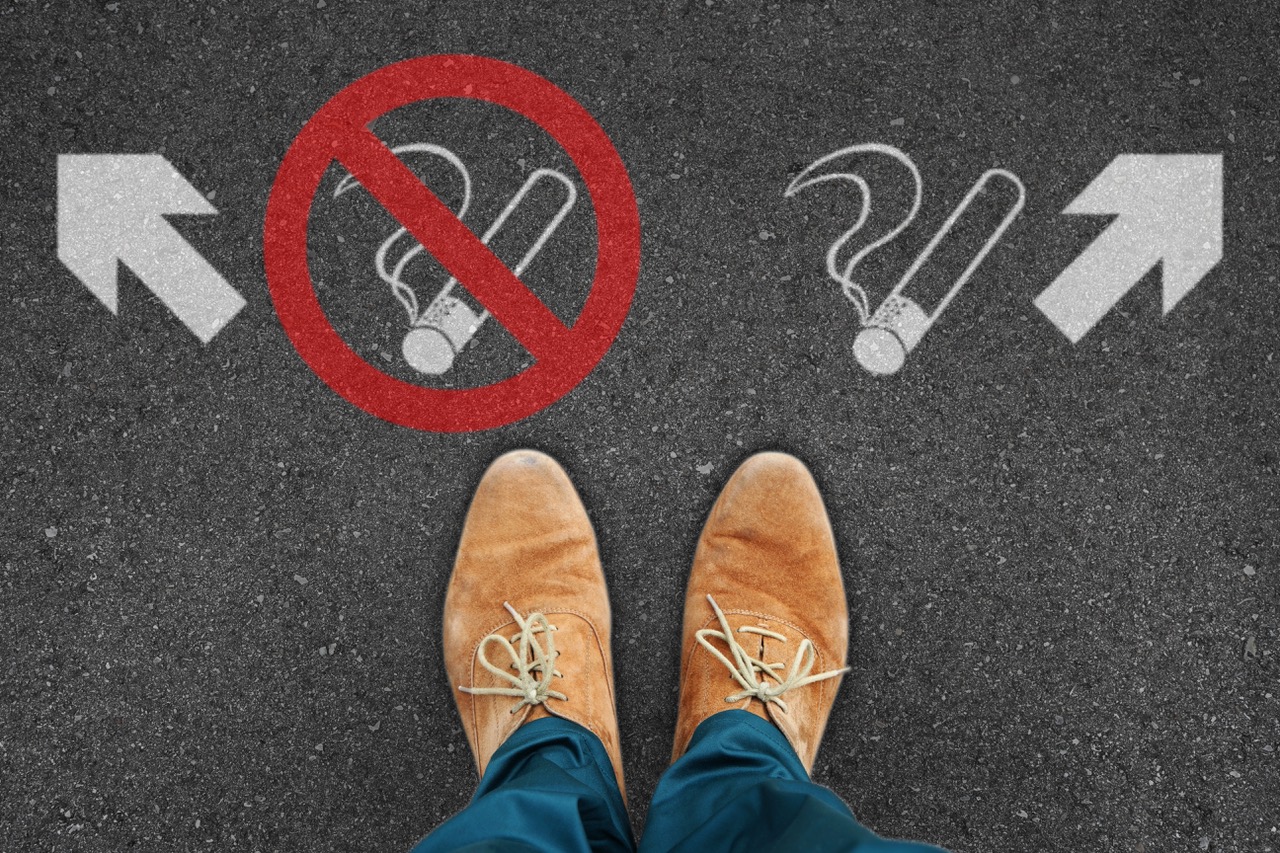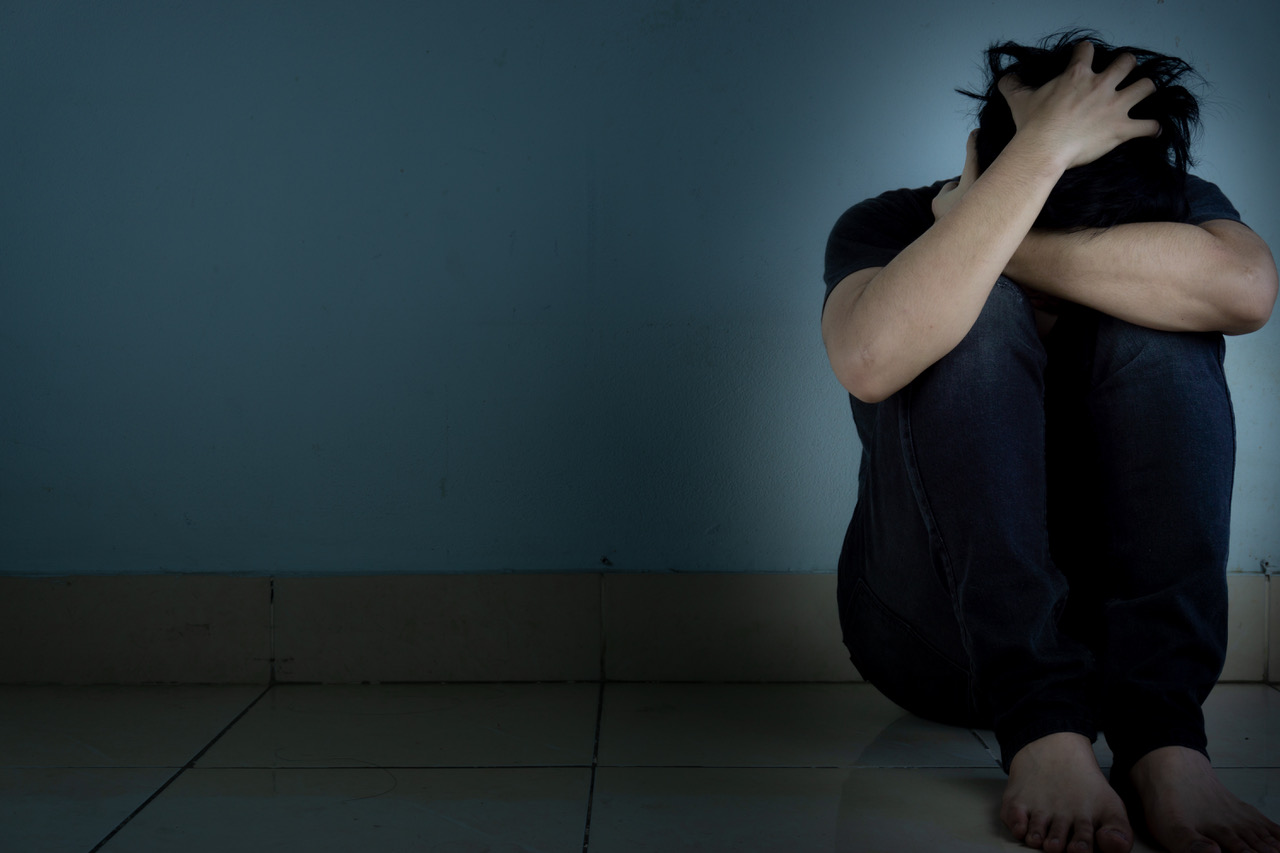filter posts:
Date
The Things We Do for Love
 I grew up in tobacco country. In fact, that noxious weed put me through college. My father and mother both worked long years and retired from R.J. Reynolds Tobacco Company. My grandmother was a receptionist for over 30 years at Whitaker Park, where cigarettes are manufactured and thousands of visitors come every year to see how the process works. My older brother also worked for Reynolds, and he was the one that I most wanted to be like when I was a young teenager. So, I fired up my first cigarette when I was 15 years old. I remember the first one because it made my head spin and my stomach turn. That should have told me something right there, but I was a little slow when it came to picking up such cues, especially when they conflicted with my goal: to be cool. I loved and admired my older brother and if smoking was good enough for him, then by golly it was good enough for me.
I grew up in tobacco country. In fact, that noxious weed put me through college. My father and mother both worked long years and retired from R.J. Reynolds Tobacco Company. My grandmother was a receptionist for over 30 years at Whitaker Park, where cigarettes are manufactured and thousands of visitors come every year to see how the process works. My older brother also worked for Reynolds, and he was the one that I most wanted to be like when I was a young teenager. So, I fired up my first cigarette when I was 15 years old. I remember the first one because it made my head spin and my stomach turn. That should have told me something right there, but I was a little slow when it came to picking up such cues, especially when they conflicted with my goal: to be cool. I loved and admired my older brother and if smoking was good enough for him, then by golly it was good enough for me.
I started out as a casual smoker, just a few cigarettes a day. That was enough to give me the ‘tough-guy image’ I was after, but kept the stench to a minimum. But there’s a not-so-funny thing about cigarettes, which I found out soon enough. They are addictive. It wasn’t long before I couldn’t eat a meal or drink a coke or enjoy a cup of coffee without craving a cigarette. Then I began to ‘need’ one after I woke up in the morning, or before I went to sleep at night.
I knew I was really hooked when I started staying home from events that would last too long and where smoking was not permitted.
I smoked for nearly ten years and I used to quote Mark Twain to my college friends who expressed concern. “Giving up smoking is the easiest thing in the world,” I told them. “I know because I’ve done it thousands of times.”
But I was hooked, and I knew it. The habit was interfering with my social life, slowing me down on the intramural fields, costing me precious funds that as a college student I really did not have, and producing a guilty conscience. Undeterred, I kept puffing…and hacking.
Then I met Cindy and fell in love. We had a whirlwind romance for a year and less than a month before my wedding day, Cindy made this announcement: “I can’t marry a smoker. You are going to have to choose…is it going to be me or cigarettes?”
I chose Cindy that same day and have not touched a cigarette since. I cannot begin to express my gratitude for a woman who was willing to draw a line in the sand and risk losing someone she loved. She drew the line because I was someone she loved and wanted to love for the rest of her life. It was God who gave me grace and strength to overcome a habit that was in control of my life. I am and will be forever grateful to the Lord for that. But God used a beautiful and gracious woman to give me the desire to quit.
Now, if you want to hear what it was like on our honeymoon, with me in the middle of full-scale nicotine-withdrawal, that’s another story. Just suffice it to say that we had some battles that might have ended our marriage if we were not so stubbornly committed to loving each other no matter what.
The Bible says, “love never fails,” and this is one grateful former smoker.
January 27, 2020
Sweet Freedom of Forgiveness
 Someone has said that the two most important words in the English language are, I’m sorry. There is power in those words, power to heal and power to set free. Perhaps the second most important words in the English language are, I’m forgiven. But what happens when we ask for forgiveness and we don’t really believe we have received it? Or we say, “Well, I know the Lord has forgiven me, I just can’t forgive myself.” Friends, that’s an awful place to be, yet it’s home for many people who refuse to accept the sweet freedom of forgiveness that is offered in Christ.
Someone has said that the two most important words in the English language are, I’m sorry. There is power in those words, power to heal and power to set free. Perhaps the second most important words in the English language are, I’m forgiven. But what happens when we ask for forgiveness and we don’t really believe we have received it? Or we say, “Well, I know the Lord has forgiven me, I just can’t forgive myself.” Friends, that’s an awful place to be, yet it’s home for many people who refuse to accept the sweet freedom of forgiveness that is offered in Christ.
C.S. Lewis said, “I think that if God forgives us we must forgive ourselves. Otherwise it is almost like setting up ourselves as a higher tribunal than Him.”
I love the story of the young boy who was throwing rocks one day down by the barn and he decided to do the very thing his father had told him not to: he took aim and fired off a few rounds at the chickens. Then he was horrified when one of his salvos hit his father’s prizewinning rooster, a bulls-eye to the head, and the rooster fell over dead. The boy was sick to his stomach with fear, and tearfully replayed the event over and over in his mind, hoping for a different result. The bird was still dead.
So the boy tried to cover his sin by hiding the rooster, but that didn’t work. He was miserable with guilt, and in bondage like he’d never experienced. He couldn’t eat, he couldn’t sleep, he couldn’t even play because of his guilt. So finally he retrieved the evidence of his sin and went to confess to his father. To his surprise and great relief, his father embraced him, forgave him, and together they buried the rooster.
The boy was free again. He could eat, play, sleep, and work without guilt. For a while. Then he lay in bed one night and played back the tape in his mind of the rooster-slaying incident until, overcome with sorrow again, he went out into the moonlight and dug up the carcass. He carefully brushed it off, cleaned it up, put it in a box and carried it to his father, asking for forgiveness with tears. The wise Dad embraced his son once again and told him that he had already forgiven him, and together they buried the bird one more time.
All was well for a few days, until one of his friends began to ride the boy pretty hard about the rooster, reminding him of how many prizes it had won. The boy tearfully dug up the bird again, but it had decomposed badly in the summer heat. He cradled this object of his father’s past affection and went to pay for his sins once more.
You see, the boy had been forgiven by his father’s grace, though he didn’t deserve it. But he never released his guilt and accepted God’s gift. Because he was more me-focused than God-focused, he fell right back into bondage by trying to ‘earn’ something God had freely given.
The sweet freedom of forgiveness cannot come through the flesh, through our works, or through anything we do. The most precious of all freedoms can only come through the work that Jesus Christ did on the cross. Freedom and forgiveness are works of God’s grace!
For freedom Christ has set us free; stand firm therefore, and do not submit again to a yoke of slavery.
January 20, 2020
Don’t Get Used to the Dark
 Vance Havner said in a sermon years ago that he walked into a restaurant that was “a dimly lit dungeon,” so dark that he was tempted to ask the waiter for a flashlight so he could see the menu. He had to feel his way to the silverware on the table. The food came, and he said, “We sat there and ate by faith and not by sight.” After a while he could begin to make out a few things on his plate. That’s when his companion for supper said, “Isn’t it amazing how you get used to the dark?” He was speaking literally, but there is a spiritual truth there that relates to fighting the good fight of faith.
Vance Havner said in a sermon years ago that he walked into a restaurant that was “a dimly lit dungeon,” so dark that he was tempted to ask the waiter for a flashlight so he could see the menu. He had to feel his way to the silverware on the table. The food came, and he said, “We sat there and ate by faith and not by sight.” After a while he could begin to make out a few things on his plate. That’s when his companion for supper said, “Isn’t it amazing how you get used to the dark?” He was speaking literally, but there is a spiritual truth there that relates to fighting the good fight of faith.
I believe one way we know we are getting used to the dark is when the fight has gone out of us and we are just floating with the current, kind of like dead fish. That’s the situation David found when he visited the battle, or the non-battle, between the Philistine’s champion, Goliath, and the army of Israel. Goliath strutted and mocked, taunting the army of Israel, challenging them to send their champion out to fight him. There were two problems with the army of Israel. First, not one soldier moved a muscle because they were all afraid. They were doing all they could to avoid a fight. Courage leads to action. Fear leads to apathy. Perhaps the reason most Christians do not contend for the faith is because we have become accustomed to our fear-born apathy. When we first got saved our faith was stronger than our fear and our joy in the Lord for saving us made us bold witnesses for Him. Remember, believer? We were not always the wisest witnesses, but God can work with that. Then the edge of our joy began to wear off and we began to settle into a routine. We got used to the encroaching darkness around us and gave up the fight.
There’s a second thing we see about this army of Israel that helps us understand what it means to fight the good fight of faith. The soldiers whom David observed that day were no longer practicing the disciplines they had first learned in the army. There was no one even in the bullpen warming up to face Goliath. The fight was gone out of the team and the game was over. Though they were trained warriors, no one was using his training. David showed up on the scene, heard Goliath’s blasphemous taunts, and immediately signed up to get in the game. He said to Saul, “Let no man’s heart fail because of him; your servant will go and fight with this Philistine.” He defeated Goliath because he was not afraid of him, because he was well trained in the weapons of his warfare, and because he used those weapons by faith. When Goliath mocked David, the young soldier replied, “You come to me with a sword and a spear and a javelin, but I come to you in the name of the Lord of Hosts.” David brought the fight to Goliath and brought glory to God.
Have you grown accustomed to the dark? Or are you fighting the good fight of faith? Examine your heart for fear and its companion, apathy. Examine your life for the disciplines that keep us always in the fight, with the Word of God and prayer being our primary training table. There are also courage-producing books that will help you think through the taunts of the enemies of faith. One that my wife and I are reading together now is Confronting Christianity: Twelve Hard Questions for the World’s Largest Religion. Rebecca McLaughlin tackles the toughest questions that confront us, with the Word and with logic. Questions like these: “Aren’t we better off without religion?” “Hasn’t Christianity denigrated women?” “Isn’t Christianity homophobic?” “How could a loving God allow so much suffering?” And many more. This book will arm you with answers and encourage you in the fight of faith.
Don’t get used to the darkness. Light a candle.
January 13, 2020
Things I Heard Along the Way
 It is my practice, on the last Sunday of the year, to share a few things I heard that year, and hopefully learned. If I may, I would share part of that sermon with you in this column.
It is my practice, on the last Sunday of the year, to share a few things I heard that year, and hopefully learned. If I may, I would share part of that sermon with you in this column.
God calls us to co-labor
Read 2 Corinthians 2:12-13 for the context. This is a passage that leapt off the page to me as I read it on January 4. I wrote in my journal, “Paul didn’t stay in Troas because Titus wasn’t there. An argument that ministry should be done with others. Or that Paul wanted a companion to encourage him and bring him joy in the hard work of ministry.” Elijah was so discouraged in his ministry as a prophet that he wanted to die and told the Lord so, adding, “I have been very jealous for the Lord…, (and) even I only, am left, and they seek my life to take it away.” God told him that there were seven thousand in Israel who were, in effect, standing with Elijah. He also sent Elisha to him, to travel with Elijah and eventually to take his place. We are never alone. But we also must seek out others to co-labor with, as Paul did, and as Jesus did.
Habits of Grace
One of the best books I read this year, and then took two young men through, is “Habits of Grace,” by David Mathis. Mathis focuses on various practices and habits of Christians that will sweeten our walk with the Lord, help us grow up in him, and make us more useful for the work he has called us to do for his name’s sake. But the author issues a caution right up front: “The grace of God is gloriously beyond our skill and technique. The means of grace are not about earning God’s favor, twisting his arm, controlling his blessing, but readying ourselves for consistent saturation in the roll of his tides.”
I love that he includes wonderful quotes from some of my favorite authors, like Donald Whitney: “One of the costs of technological advancement is a greater temptation to avoid quietness,” and so we “need to realize the addiction we have to noise.”
SMART goals
I don’t remember when I first heard this acronym, but I wrote about it in my journal in February.
Specific: Non-specific goals are not goals at all. For example, a goal to “read more in my Bible this year” is not specific enough. To “read through the Bible” is better. Or, “to spend a month in a single book of the Bible, reading it over and over, before moving on to another book in the next month.”
Measurable: we all know what that means. How will you know you reached your goal if you cannot measure it? To become “better acquainted with the Bible” is not as measurable as, “Commit a chapter of Scripture, like Ephesians 1, to memory.”
Attainable: “Telling everybody at my workplace about Jesus,” is not attainable if you work at a large company. “Tell one new person about Jesus each week” is a reasonable goal.
Realistic: To travel to every state in the country this year is not realistic. To take your family on a vacation for a week is, and if you haven’t done that in a while, I highly recommend it. Jesus told his disciples on occasion to come apart for a while and rest. As Vance Havner said, “If you don’t come apart for a while, you will come apart!”
Time-Bound: If you are going to pay off a debt this year, set a reasonable time limit. Put a date on when you plan to finish writing a letter, or a song, or even a book. Then do whatever it takes, without sin, to meet your own deadline. Plan your work, then work your plan.
May the Lord bless you with great fruitfulness in Him this year!
January 5, 2020
